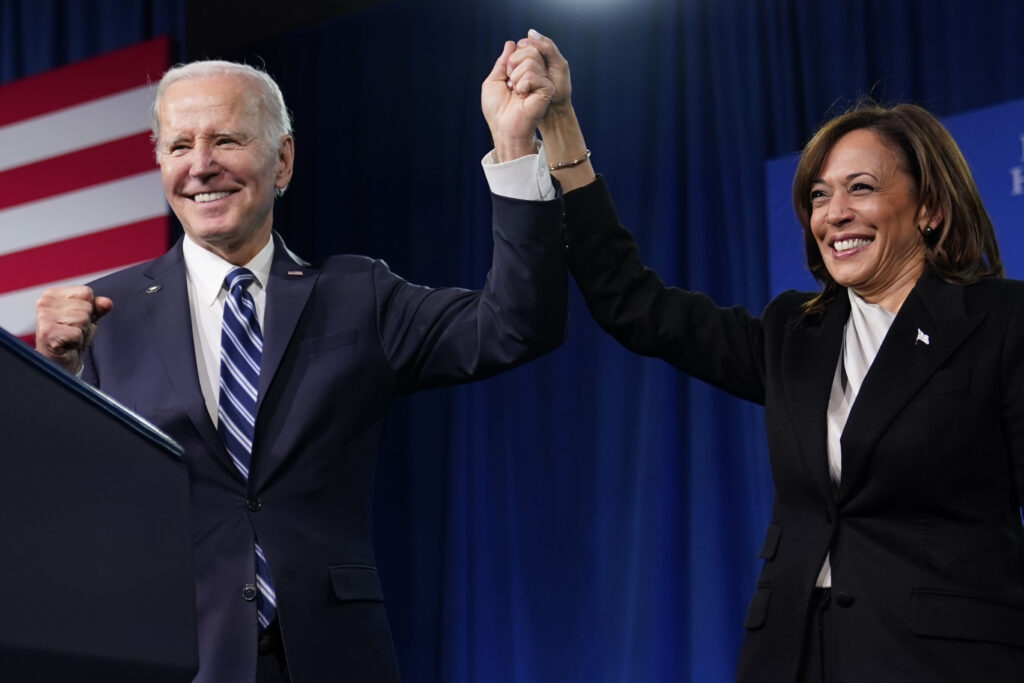Biden Drops Out, Endorses Harris — What Happens Next?

President Joe Biden has dropped out of the 2024 presidential race, endorsing Vice President Kamala Harris to take his spot in a post on X this afternoon.
“I have decided not to accept the nomination and to focus all my energies on my duties as President for the remainder of my term,” Biden said.
In an X post over the weekend, Harris issued a statement on Biden’s endorsement.
“I am honored to have the President’s endorsement and my intention is to earn and win this nomination,” Harris said. “I will do everything in my power to unite the Democratic Party—and unite our nation—to defeat Donald Trump and his extreme Project 2025 agenda.”
The country is now in a historical and unprecedented situation. Here’s what happens next.
It will become a race to win over a majority of the 4,000-plus Democratic delegates, George Washington University Professor Matt Dallek, a political historian, said. He added it would be like a mini-campaign or mini-primary.
“The primary would involve — in a very compressed period of time — raising money, generating social media buzz, [seeing] what poll numbers look like and wooing delegates state by state,” Dallek said.
This would have to occur because all of the delegates, except for a small number that are uncommitted, are currently pledged to Biden. This is because “the primary voters voted for him as the nominee, and the delegates are supposed to represent the express will of those voters,” Dallek explained.
How does this impact democracy? Because Biden dropped out, the power is in the hands of delegates — often appointed — not the voters. This is essentially a return to the pre-1972 nomination process where the power was in the hands of party elites, Dallek said.
Since Biden endorsed Harris, her path to the nomination is fairly certain, since “it would be hard for delegates to abandon her,” Dallek stated.
“My very first decision as the party nominee in 2020 was to pick Kamala Harris as my Vice President. And it’s been the best decision I’ve made,” Biden wrote. “Today I want to offer my full support and endorsement for Kamala to be the nominee of our party this year.”
Dallek explained that since primary voters not only voted for Biden on the ticket, but Harris as well, the delegates in theory are obligated to support her. Also, Harris has access to all of the funds raised for the Biden-Harris campaign as well as the resources the campaign has, which gives her a significant advantage.
However, nothing is absolutely guaranteed.
“The vice president is not necessarily going to be the automatic nominee,” Dallek said. “It’s not a slam dunk. There are other paths that the party could take that would require Harris to compete for a majority of delegates over the next few weeks.”
Other names that have been thrown around for the Democratic presidential nominee include California Gov. Gavin Newsom and Michigan Gov. Gretchen Whitmer.
The Democratic National Convention is set to take place from August 19-22 — with a virtual nomination earlier in the month to satisfy Ohio’s ballot deadline — and it will be less of a ceremonial event as it would actually be a formal selection of who the nominee will be, Dallek noted.
Then, there’s the issue of selecting a vice presidential nominee to run with. If Harris knows she has the support of the majority of the delegates, then she could select a VP quickly and go into the convention knowing who’s on her ticket, Dallek said.
If she or other potential candidates don’t know if they’ll win the majority of the delegates, they could either choose a VP before the convention — hoping that person will help them gain the support of the delegates — or wait to make their selection after they officially become the nominee.
“That’s a totally open question. I think there are a lot of different ways it could shake out,” Dallek said.
In this historic moment, voters across the country will have to wait until the convention to see who will face off against former President Donald Trump in November.
Biden said in a written statement that he will speak to the nation later this week in “more detail” about his decision.
“It has been the greatest honor of my life to serve as your President,” Biden wrote. “And while it has been my intention to seek reelection, I believe it is in the best interest of my party and the country for me to stand down and to focus solely on fulfilling my duties as President for the remainder of my term.”
This story was updated on July 22, 2024, at 11:05 a.m. EDT to add Harris’ statement on Biden endorsing her.